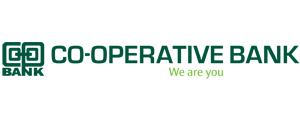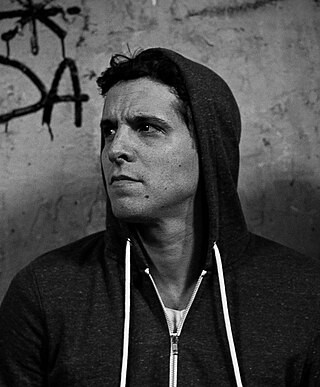Related Research Articles

Tora Bora is a cave complex, part of the Spin Ghar mountain range of eastern Afghanistan. It is situated in the Pachir Aw Agam District of Nangarhar, approximately 50 kilometres west of the Khyber Pass and 10 km (6 mi) north of the border of the Khyber Pakhtunkhwa province in Pakistan. Tora Bora and the surrounding Spin Ghar range had natural caverns formed by streams eating into the limestone, that had later been expanded into a CIA-financed complex built for the Afghan mujahideen. Tora Bora was known to be a stronghold location of the Afghan mujahideen, used by military forces against the Soviet Union during the 1980s.

Borås is a city and the seat of Borås Municipality, Västra Götaland County, Sweden. It had 114,556 inhabitants in 2024. It is widely known for being a textile city, home to worldwide brands and companies as well as the prestigious Swedish School of Textiles that makes part of the University of Borås.

The Borås Arena is a football stadium in Borås, Sweden. It is the home ground of IF Elfsborg and Norrby IF and was opened in 2005. Borås Arena has an artificial turf pitch, GreenFields MX by GreenFields, and has a capacity of 16,200. Both clubs presently using the stadium previously had Ryavallen as their home ground. Until recently it was the only stadium in Allsvenskan built in the last 40 years. The arena is located in Knalleland and is very close to the newly built athletics hall Ryahallen.

Borås Municipality is a municipality in Västra Götaland County in western Sweden. Its seat is located in the city of Borås.

Svenska Basketligan, or the Swedish Basketball League (SBL), is the premier league for professional basketball in Sweden. The league was originally established in 1992 as Basketligan and was known as that prior to the season of 2006–07, but when the Swedish company Obol Investment signed an agreement with the Swedish Basketball Federation in early October 2006, the league was renamed Obol Basketball League (OBL). In January 2007 the name was changed to Ligan, meaning simply the League.
The 2009 UEFA European Under-21 Championship began on 15 June 2009, and was the 17th UEFA European Under-21 Championship. This was the first tournament after the competition reverted to a two-year format, following the single-year 2006–07 competition, which allowed the change to odd-numbered years. Sweden hosted the final tournament in June 2009; therefore, their under-21 team qualified automatically. Players born on or after 1 January 1986 were eligible to play in this competition.

Ingrid Munro, born Ingrid Mårtensson 25 March 1941 in Norrköping, Sweden, is a Swedish architect who founded and manages Jamii Bora, a microfinance organization based in Nairobi, Kenya.
Bharat Financial Inclusion Limited or BFIL is a banking & finance company (NBFC), licensed by the Reserve Bank of India. It was founded in 1997 by Vikram Akula, who served as its executive chair until working. The company's mission is to provide financial services to the poor under the premise that providing financial service to poor borrowers helps to alleviate poverty. In 2011, the company operated across 11 Indian states.

In Sweden many trains run at 200 km/h (125 mph). Train types which currently attain this speed include the X 2000 tilting trains for long distances, the Regina widebody trains, the X40 double-decker regional trains, the Arlanda Airport Express X3, the MTRX-trains and the Stadler KISS-inspired double-decker regional trains. Since both the X2 and X3 are allowed to run at 205 km/h (127 mph) in case of delay, they can technically be considered as high-speed trains. The X2 runs between many cities in Sweden including Stockholm, Gothenburg, and Malmö. The Arlanda Express trains connect Stockholm and Stockholm-Arlanda Airport.

The Microcredit Summit Campaign, an American non-profit organization, started as an effort to bring together microcredit practitioners, advocates, educational institutions, donor agencies, international financial institutions, non-governmental organizations and others involved with microcredit around the goal of alleviating world poverty through microfinance.
Innovations for Poverty Action (IPA) is an American non-profit research and policy organization founded in 2002 by economist Dean Karlan. Since its foundation, IPA has worked with over 400 leading academics to conduct over 900 evaluations in 52 countries. The organization also manages the Poverty Probability Index.
Project Enterprise was an American microfinance nonprofit organization in New York City providing entrepreneurs from underserved areas with loans, business training and networking opportunities. Operating on the Grameen Bank model of microlending, as of 2008, Project Enterprise (PE) had served more than 2,500 entrepreneurs in New York City, and provides microloans from $1,500 to $12,000. The organizations web site was closed in 2017.

Co-operative Bank of Kenya is a commercial bank in Kenya, the largest economy in the East African Community. It is licensed by the Central Bank of Kenya, the central bank and national banking regulator. The bank has introduced Agency banking model and has a deep customer base in Kenya with over 7.5 million accounts as of December 2018. In 2010, the bank was awarded "Best Bank of Kenya" by the London Financial Times due to their excellent growth.
Kingdom Bank Limited (Kenya), formerly Jamii Bora Bank, is a commercial bank in Kenya. It is one of the commercial banks licensed by the Central Bank of Kenya, the national banking regulator.
Gregory F. Casagrande is an American businessman and the founder of South Pacific Business Development Microfinance Network, the leading microfinance institution in the Pacific Islands region. He is also the founder of MicroDreams, a microfinance acceleration fund working with emerging microfinance institutions in Latin America, Africa and the Pacific and Transformative Ventures LLC, a Microfinance advisory company.

Shai Dahan is an American contemporary painter and street artist who works with painting, drawing, illustrations and sculptures.

Faulu Microfinance Bank Limited, commonly referred to as Faulu Kenya, is a microfinance bank based in Kenya. It is regulated by the Central Bank of Kenya. The word Faulu is Swahili for succeed.
Microfinance in Kenya consists of microfinance facilities and regulations in Kenya which has been developing since the mid 1990s. Legislation was passed in 2006 with the Micro Finance Act which became active in 2008. By 2010 there were more than twenty large micro finance institutions in Kenya, which provided US $1.5 billion to approximately 1.5 million active borrowers. With over 100,000 clients, Equity Bank Kenya had the largest share of business loans representing market share of 73.50% followed by Kenya Women Microfinance Bank with 12.06%. Most microfinance firms as in other countries have eligibility criteria which may include gender, age, a valid Kenyan ID, a business, an ability to repay the loan and be a customer of the institution.
Choice Microfinance Bank, whose full name is Choice Microfinance Bank Kenya Limited or CMBKL, is a deposit-taking microfinance bank in Kenya, licensed by the Central Bank of Kenya, the national banking regulator.
References
- 1 2 Chris V. Nicholson (reporter) (July 9, 2007). "In Poorer Nations, Cellphones Help Open Up Microfinancing". New York Times . Retrieved 2011-09-17.
- ↑ Nicholas D. Kristof (September 14, 2011). "Sewing Her Way Out of Poverty". New York Times . Retrieved 2011-09-15.